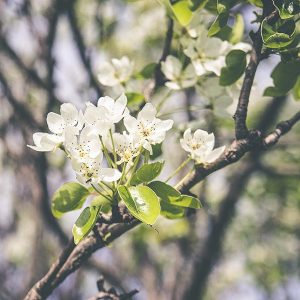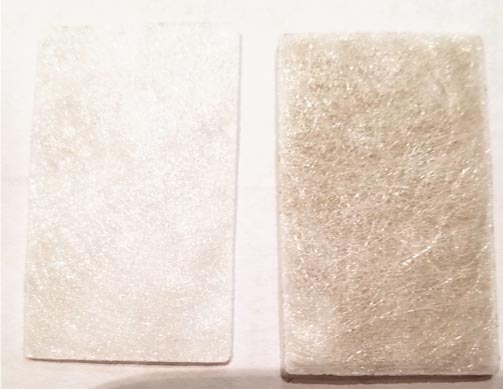Address:
20 Park Plaza, Suite 804
Boston, MA 02116
978-888-7999
Address:
20 Park Plaza, Suite 804
Boston, MA 02116
978-888-7999

The pollen count in Atlanta Georgia on April 11 was as high as any date since 2015. Georgia has been subject to the same sort of weather that we’ve experienced here – colder and wetter than usual. The first wave of tree pollen will be triggered by the transition into warmer, spring weather, which is about due. I can’t make an exact prediction (neither can anyone else), but it is close. While the species of tree may differ, what is happening in Georgia presages what will happen here. Our Maple, Poplar, and Juniper trees will expel huge quantities of pollen shortly.
 You may have noticed that this past winter and spring have also had unseasonably high winds. Tree pollen is extremely light and will be carried everywhere. People with no history of allergies are likely to experience red eyes, runny noses, sore throats, and coughs. The more sensitive people will have exacerbations of asthma, bronchitis, and sinusitis. While there is more pollen at ground level, significant quantities of tree pollen and fungal spores have been detected up to 6,000 feet in the atmosphere. High-rise living does not protect one from seasonal allergies.
You may have noticed that this past winter and spring have also had unseasonably high winds. Tree pollen is extremely light and will be carried everywhere. People with no history of allergies are likely to experience red eyes, runny noses, sore throats, and coughs. The more sensitive people will have exacerbations of asthma, bronchitis, and sinusitis. While there is more pollen at ground level, significant quantities of tree pollen and fungal spores have been detected up to 6,000 feet in the atmosphere. High-rise living does not protect one from seasonal allergies.
First, understand that your reaction to allergens is cumulative. If your household environment is stimulating your allergies, then you will be more sensitive when you go outdoors. Similarly, if your mucosal membranes can rest in your indoor environment, then your intensity of reacting outside diminishes. Controlling your indoor environment will reduce your response outdoors.
Prominent indoor allergens include dust mites, pet dander, secondhand smoke, mold/fungi, and dust accumulators like carpets. It also includes outdoor allergens coming in the windows.
Dust mites can be controlled with finely-woven allergen-impermeable sheets and pillows, and by keeping humidity in the bedroom under 50%. Keeping pets out of bedrooms, getting your smokers to smoke outside, investigating/remediating wet basements and water stains on walls or ceilings, using a HEPA equipped vacuum cleaner, and deep cleaning carpets with water or steam appliances will help. Keep bedroom windows closed, and keep a room-sized HEPA filter on 24 hours a day in a closed bedroom to keep the air in the bedroom allergen-free. This will rest your mucosal membranes while you sleep. When you go outside, the allergens will affect you less. Air conditioners don’t condition (clean) air. Your window air conditioner, unless equipped with HEPA filtration, will suck outdoor allergens into your bedroom.
A special note for CPAP users: There is a small sponge filter on the rear of your machine. It covers the air intake. It does not filter pollen. Below is a picture of a new CPAP pollen filter and another after 2 weeks of use. They can be ordered from your CPAP supplier or from Amazon. Change them often.

 Your immune system functions differently from day-to-day. Seasonal allergens can vary logarithmically from one day to the next. Development of medications that control allergic reactions has proved elusive – too many moving targets. Several days of drenching rain can reduce allergens to nearly zero, yet one hot, sunny day will raise them back to severe levels.
Your immune system functions differently from day-to-day. Seasonal allergens can vary logarithmically from one day to the next. Development of medications that control allergic reactions has proved elusive – too many moving targets. Several days of drenching rain can reduce allergens to nearly zero, yet one hot, sunny day will raise them back to severe levels.
The normal sequence of “have symptoms-take medicine” only works for people with mild allergies. Current thinking is that antihistamines and nasal steroids should be taken early in the season, and for at least four weeks, not just when symptomatic. The idea is: since there is no way to control the variability of the outdoor environment, try to control your own response. If you’re having a lot of allergy issues, you may wish to consult your physician.
Immunotherapy, better known as “allergy shots,” is a long-term alternative, if you have symptoms more than 3 months a year and medicines don’t give you enough relief. To get up to a therapeutic dose takes 4-5 months, so it won’t help for this season, but is worth considering for long-term relief.
Sublingual immunotherapy (SLIT) is a way to treat allergies without injections. An allergist gives a patient small doses of an allergen under the tongue to boost tolerance to the substance and reduce symptoms. Currently, the only forms of SLIT approved by the FDA are tablets for ragweed and grass pollen. However, there are ongoing studies of both sublingual (and oral) immunotherapy for many other allergens, including peanut allergy. Check with your allergist.
If you’re an allergy sufferer, prepare now. Consult your physician if necessary. Stock up on antihistamines, nasal steroids, or your preferred remedies. Start any recommended medications before symptoms become difficult. Clean your home environment and take steps to keep your indoor air clean. Ensure your vacuum is not pushing allergens back into the room, and investigate HEPA filtration if you don’t already have it. And have a happy spring!